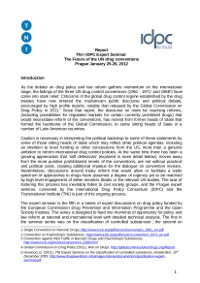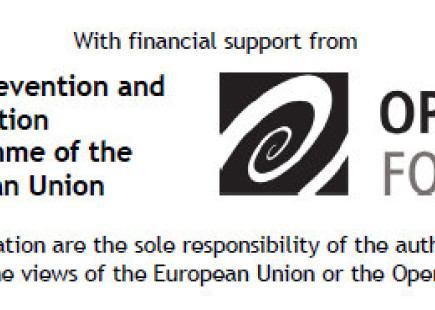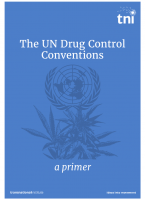Expert Seminar on the Future of the UN Drug Conventions
As the debate on drug policy and law reform gathers momentum on the international stage, the failings of the three UN drug control conventions (1961, 1971 and 1988) have come into stark relief. Criticisms of the global drug control regime established by the drug treaties have now entered the mainstream public discourse and political debate. The discussions around treaty reform that would allow or facilitate a wider spectrum of approaches to drugs are assuming a degree of urgency.

The technicalities of convention reform form an important part of the discussion but arguably subservient to the wider political discourse. Until sufficient political will exists, substantive reform of the UN drug conventions will not be possible, despite growing recognition that the current drug control regime is not working. For this to occur the political calculus will need to shift so that the cost-benefit analysis for individual States moves decisively in favour of proactive engagement.
This expert seminar is the fifth in a series of expert discussions on drug policy funded by the European Commission Drug Prevention and Information Programme and the Open Society Institute. The series is designed to feed into moments of opportunity for policy and law reform at national and international level with detailed technical analysis. The first in the seminar series was on the classification of controlled substances , the second on threshold quantities the third on proportionality in sentencing for drugs offences and the fourth on herbal stimulants and legal highs. All seminars have been convened under Chatham House Rule to ensure confidentiality and to allow participants a free exchange of ideas.
The report of this seminar has been divided up under key headings that reflect the structure of the days’ discussions, with a summary of key points and conclusions at the end.
- Exploring the technical and bureaucratic dimension of convention reform
- The political calculus: Dealing with sub-optimality
- How to constructively frame the debate on convention reform
- Potential drivers of change / avenues for progress
- Lessons from Latin America
- Lessons from Bolivia
- The role of Europe
- Discussion and Conclusions
See also:
- The UN drug control conventions: The Limits of Latitude, by Dave Bewley-Taylor and Martin Jelsma, Series on Legislative Reform of Drug Policies Nr. 18, March 2012
- Towards revision of the UN drug control conventions: The logic and dilemmas of Like-Minded Groups, by Dave Bewley-Taylor, Series on Legislative Reform of Drug Policies Nr. 19, March 2012

Prague
Transnational Institute
January 25-26, 2012
